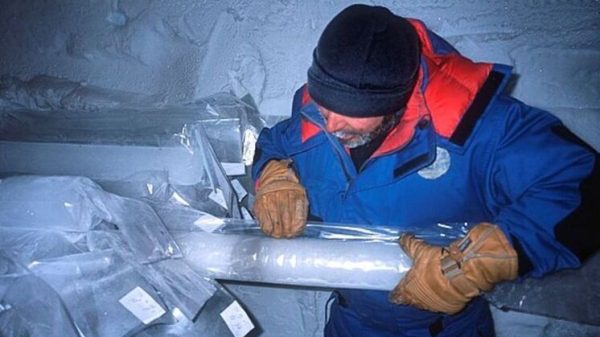Sign up for the Guardian’s First Thing newsletter
House impeachment managers rested their case against Donald Trump on Thursday, concluding that the deadly Capitol assault he stands accused of inciting was the culmination of a presidency beset by lies and violent rhetoric, and warning gravely that he would remain a threat to American democracy if not convicted and barred from holding future office.
With an impassioned appeal to the senators, who are serving as both jurors and witnesses to the alleged “high crime” at the heart of Trump’s second impeachment, the nine managers chosen to prosecute the House’s case declared Trump “overwhelmingly guilty” of inciting the 6 January riot.
“If you think this is not impeachable, what is? What would be?” congressman Jamie Raskin, the lead impeachment manager, asked the senators seated silently before him. “If you don’t find this a high crime and misdemeanor today, you have set a new, terrible standard for presidential misconduct in the United States of America.”
Over the course of two days, they offered a methodical account of Trump’s months-long campaign to convince his supporters the election had been stolen. When all other attempts to overturn his electoral defeat failed, Trump summoned his loyal supporters to Washington for a rally on 6 January, his last stand. Hours before Congress met to certify Joe Biden’s victory that day, Trump exhorted the crowd to “fight like hell” and “stop the steal”.
“When President Trump stood up at that podium on 6 January, he knew that many in that crowd were inflamed, were armed, were ready for violence,” said the congressman Joe Neguse, one of the managers. “It was an explosive situation and he knew it.”
Five shocking videos from the Capitol attack shown at Trump’s impeachment trial
Read more
On their second full day of arguments, the prosecutors turned to the words of the rioters themselves as evidence they were acting at Trump’s direction. They played several new video clips, and pointed to legal documents and media interviews in which the attackers said they were following Trump’s wishes. “We were invited here,” one rioter screams at a police officer. “He’ll be happy,” another said. “We’re fighting for Trump.”
“They didn’t shy away from their crimes, because they thought they were following orders from the commander-in-chief,” said Diana DeGette, a Democratic congresswoman from Colorado. “They came because he told them to.”
Trump deliberately fomented the violence, they argued, and then, once the siege began, betrayed his oath to protect and defend the constitution and the American people. In the immediate aftermath, Trump “showed no remorse and took no accountability”, said the congressman Ted Lieu, a manager.
The toll of the insurrection was immense, they said: five fatalities, multiple injuries and incalculable emotional wounds; the destruction of an iconic building and a lasting stain on American democracy.
The prosecutors returned repeatedly to the notion that the violence had been “foreseeable”. They sought to establish a pattern that showed Trump had incited or sanctioned violence long before 6 January – praising “both sides” after the deadly white supremacist march in Charlottesville, Virginia, in 2017; applauding a congressman who assaulted a reporter; encouraging his supporters to confront the governor of Michigan, and then later joking about a foiled plot to kidnap her.
“These tactics were road-tested,” Raskin said. “January 6 was a culmination of the president’s actions, not an aberration from them.”
By turn, the prosecutors made an emotional case, built on the lawmakers’ own memories of a day that many feared would be their last. In perhaps the most dramatic moment of the trial, the managers on Wednesday played harrowing security footage and police dispatches that revealed just how close the nation’s leaders came to the mob hunting them down.
Security footage showed Mike Pence, Trump’s vice-president who was at the Capitol to certify the election results, senators and House staff narrowly evacuating before the rioters closed in. Senator Mitt Romney learned only during the trial that he had been just steps away from the rioters, led to safety by the Capitol police officer Eugene Goodman, praised as a hero for his actions during the siege.
Other footage showed rioters brutalizing Daniel Hodges, another officer, yelling as he was crushed in a doorway – an image that visibly upset some of the senators watching the proceeding.
Damned by his own words: Democrats follow Trump’s wide-open multimedia trail | David Smith’s sketch
Read more
When Trump’s legal team takes to the floor on Friday, his defense is likely to deny that the former president was responsible for the riot, and that it would set a dangerous precedent to punish him for what they have argued was essentially political speech protected by the first amendment.
As the trial was under way, one of Trump’s lawyers, David Schoen, appeared on Fox News to decry the Democrats’ presentation as little more than an “entertainment package”.
“In no setting in this country where someone’s guilt or innocence is being adjudicated would this kind of approach be permitted,” he said.
The defense will have 16 hours to make their case, over two days, though they are not expected to use all of that time. Trump declined an invitation to testify, and it remains unclear whether witnesses will be called.
Offering a pre-emptive rebuttal of the defense’s central arguments, the managers said the Senate vote on Tuesday to proceed with the trial – which drew just six Republicans – undercut their contention that it was unconstitutional to put the president on trial, even though he is no longer in office. Branding Trump the “inciter-in-chief,” the managers said they showed he had clearly “assembled, inflamed and incited” the insurrection and was therefore not protected by the first amendment.
With little hope of conviction, the managers appealed directly to Republicans’ sense of duty and patriotism. They quoted conservative legal scholars, including the late supreme court justice Antonin Scalia, and read from the resignation letters of Trump cabinet officials who left in protest after the insurrection, among them the former transportation secretary Elaine Chao, who is the wife of the Senate minority leader, Mitch McConnell. They highlighted reactions from abroad – the shock of allies and the taunts of foes.
Speaking to reporters on Thursday, Biden expressed optimism that “some minds may be changed” by the managers’ case.
Though some Republicans appeared visibly moved by the managers’ stirring yet chilling retelling of the riot, others remained unmoved. The South Carolina senator Lindsey Graham, a close ally of Trump, called the Wednesday presentation “offensive and absurd”. The Oklahoma senator James Inhofe told reporters during a break: “They’re losing credibility the longer they talk.”
Seventeen Republican senators would have to join with all Democrats to find Trump guilty, a daunting task. A conviction would allow the Senate to disqualify Trump from ever holding future office, which the managers argued was not only a fitting punishment but a safeguard against future “offenses against our republic”.
“My dear colleagues, is there any political leader in this room who believes that if he is ever allowed by the Senate to get back into the Oval Office, Donald Trump would stop inciting violence to get his way?” Raskin asked the senators who will soon render their verdict, perhaps as early as Sunday. “Would you bet the lives of more police officers on that? Would you bet the safety of your family on that? Would you bet the future of your democracy on that?”























































Свежие комментарии